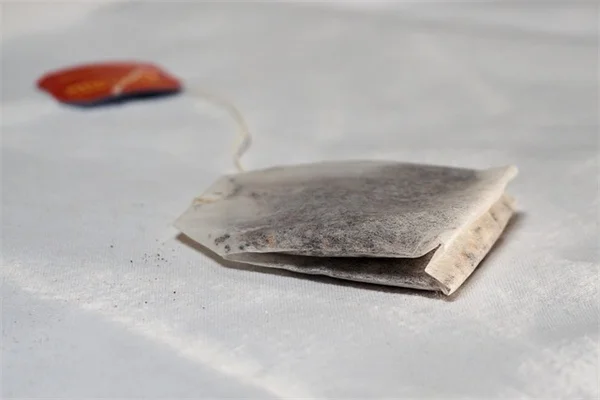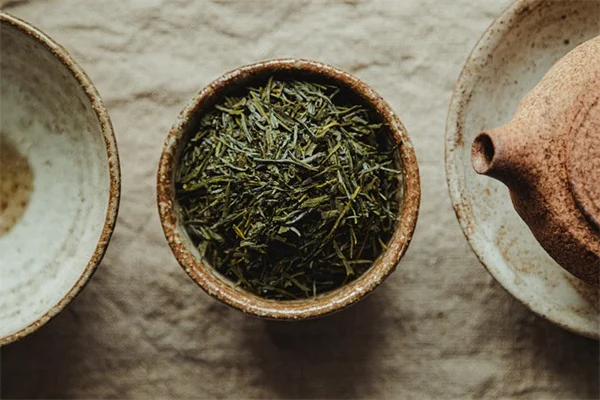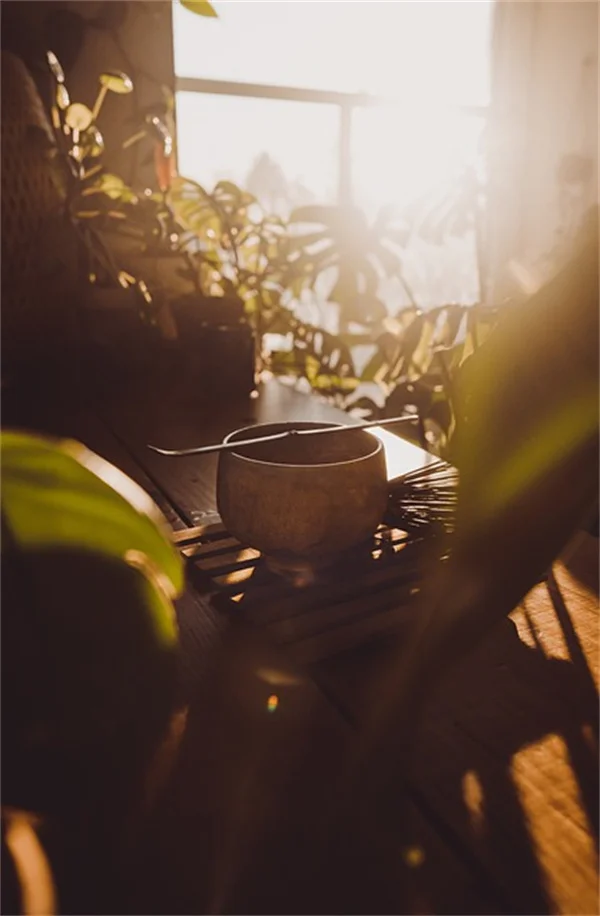Advertisement
What is a Breast Cancer Risk Assessment Score and why does it matter? The answer is simple: This calculation could save your life, just like it did for actress Olivia Munn. When her doctor ran the numbers, they revealed a 37% lifetime risk - high enough to qualify for additional screening that detected her cancer early. Here's the kicker: standard tests had come back clean just months before!I want to break this down for you in plain English. The Breast Cancer Risk Assessment Score isn't some scary medical mystery - it's a powerful tool that looks at your personal health history to predict your chances of developing breast cancer. And here's what really blows my mind: any woman over 18 can request this assessment, yet most don't even know it exists!Dr. Thaïs Aliabadi, the OBGYN who helped Munn, puts it perfectly: Knowledge empowers, and it's vital for each individual to advocate for their own health. That's why we're diving deep into how this assessment works, who should get it, and most importantly - how it might just give you the early warning you need to stay healthy.
E.g. :Jennifer Stone's Inspiring Journey: From Disney Star to ER Nurse with Type 1 Diabetes
- 1、Olivia Munn's Life-Saving Breast Cancer Journey
- 2、Understanding Breast Cancer Risk Assessment
- 3、When Doctors Say "No" to Testing
- 4、The Life-Changing Benefits of Knowing Your Risk
- 5、Emotional Considerations Before Testing
- 6、Celebrity Impact on Cancer Awareness
- 7、The Hidden Factors in Breast Cancer Risk
- 8、The Food Connection
- 9、Mental Health Matters Too
- 10、Prevention Beyond Mammograms
- 11、FAQs
Olivia Munn's Life-Saving Breast Cancer Journey
A Star's Brave Revelation
When Olivia Munn posted that Instagram announcement on March 13, she did more than share personal news - she started a nationwide conversation about breast cancer awareness. At 43, this talented actress underwent a double mastectomy after doctors discovered Luminal B Cancer in both breasts. But here's the kicker - just months before, all her standard tests came back clean!
"I wouldn't have found my cancer for another year," Munn wrote, giving full credit to her OBGYN Dr. Thaïs Aliabadi for running that crucial Breast Cancer Risk Assessment Score. The test revealed Munn had a 37% lifetime risk - high enough to qualify for additional screening that ultimately detected her cancer early. Now that's what I call a medical touchdown!
The Doctor Who Saved Herself Too
Here's an amazing twist - Dr. Aliabadi isn't just Munn's physician, she's also a breast cancer survivor who discovered her own Stage 1 cancer through the same risk assessment method! Talk about practicing what you preach.
"Olivia's journey is truly remarkable, and as a breast cancer survivor myself, I couldn't be prouder of her," Aliabadi told Healthline. What really blows my mind? This dynamic doctor-team proves that even when standard tests look good, knowing your personal risk numbers can be a literal lifesaver.
Understanding Breast Cancer Risk Assessment
 Photos provided by pixabay
Photos provided by pixabay
Who Should Get Checked?
Here's the deal - any woman over 18 can request this assessment from their doctor. But wait, isn't this just for people with family history? That's where you'd be wrong! Even if your family tree looks cancer-free, other factors like your menstrual history, weight, and hormone use play major roles.
The U.S. Preventive Services Task Force recommends assessment especially for women with:
- Personal/family history of breast/ovarian cancers
- Ancestry linked to BRCA gene mutations
- Certain lifestyle factors (like late first pregnancy)
The Tyrer-Cuzick Model Explained
This fancy-named model is like your personal breast cancer fortune teller (minus the crystal ball). It crunches numbers on:
| Factor | Why It Matters |
|---|---|
| Age at first period | Earlier periods mean longer estrogen exposure |
| Pregnancy history | First child after 30 or no children increases risk |
| Menopause age | Later menopause extends hormone exposure |
| Family history | Relatives' diagnoses paint part of your risk picture |
Scoring 20-25% or higher on this model? That's your ticket to additional screening like breast MRIs - which, fun fact, can spot cancers mammograms might miss!
When Doctors Say "No" to Testing
Your Right to a Second Opinion
Ever heard the saying "the customer is always right"? Well, when it comes to your health, the patient should always be heard. If your doctor brushes off your request for risk assessment, it's time to channel your inner Olivia Munn and advocate for yourself.
Did you know that up to 25% of women have family histories qualifying them for further assessment? That's 1 in 4! So if your gut says "get checked" but your doc says "not necessary," remember - you're the CEO of your body. Fire that medical opinion and hire a new one!
 Photos provided by pixabay
Photos provided by pixabay
Who Should Get Checked?
Here's some exciting news - Dr. Aliabadi is developing a breast cancer risk calculator for her website. Imagine being able to input your stats and get personalized guidance before even stepping into a doctor's office! As she puts it, "This will enable women to have a clear action plan to discuss with their doctor." Now that's what I call girl power in action.
The Life-Changing Benefits of Knowing Your Risk
Early Detection = Better Outcomes
Let me ask you something - would you rather find cancer when it's the size of a pea or a grapefruit? Seems like a no-brainer, right? That's exactly why knowing your risk score matters. Women with >20% lifetime risk qualify for earlier and more frequent screenings.
But here's the real answer - catching cancer early dramatically improves treatment success rates. We're talking about potentially avoiding chemotherapy or having more surgical options. As my grandma used to say, "An ounce of prevention is worth a pound of cure." And in this case, that prevention starts with knowing your numbers.
Beyond Screening: Your Risk-Reduction Toolkit
Knowledge isn't just power - it's prevention! With your risk score in hand, you and your doctor can create a customized game plan that might include:
- Medications like SERMs or aromatase inhibitors
- Lifestyle changes (less alcohol, more veggies)
- Regular exercise routines
- For high-risk cases, preventive mastectomies
Think of it like a choose-your-own-adventure book where every path leads to better health. Pretty cool, huh?
Emotional Considerations Before Testing
 Photos provided by pixabay
Photos provided by pixabay
Who Should Get Checked?
Here's something we don't talk about enough - finding out your cancer risk is emotional stuff! Before running those tests, ask yourself: "How will I handle this information?" Some women feel empowered knowing their risk, while others might feel overwhelmed.
The key is remembering that knowledge gives you options. As genetic counselor Sara Pirzadeh-Miller notes, "Will the individual use the information to make proactive decisions... or not use it at all?" There's no right answer - just what's right for you.
When Tests Say "Negative" But Risk Says Otherwise
Here's a head-scratcher - Olivia Munn's genetic test came back negative, yet she still had high risk. How does that work? Turns out, standard genetic tests only cover certain mutations, while risk assessments look at the bigger picture.
This is where specialists like genetic counselors become your personal health detectives. They can piece together your complete risk profile, even when standard tests don't tell the full story. Remember - in medicine, sometimes you need to read between the lines!
Celebrity Impact on Cancer Awareness
Stars Like Munn Change the Game
When celebrities share their health journeys, magic happens. Munn's story isn't just about one woman - it's about starting conversations in millions of homes. Suddenly, women across America are asking their doctors about risk assessments.
Public figures have this incredible power to make medical topics less scary. As Pirzadeh-Miller puts it, "Anyone sharing their story... will bring awareness to those who ingest the information." So here's to celebrities who turn their personal battles into public education!
Beyond the Headlines: Your Next Steps
Inspired by Olivia's story? Great! Here's what you can do today:
- Jot down your family health history
- Call your doctor to discuss risk assessment
- Share this info with the women in your life
Remember - you don't need to be a Hollywood star to take charge of your health. Your body is the most important role you'll ever play, so give it the attention it deserves!
The Hidden Factors in Breast Cancer Risk
Environmental Factors We Often Overlook
You might be shocked to learn that where you live could impact your breast cancer risk. Studies show women in urban areas with high pollution levels face increased risks. The air we breathe contains endocrine disruptors that mimic estrogen - and that's bad news for breast tissue.
Ever thought about your nighttime routine? Artificial light exposure at night messes with melatonin production, which helps regulate estrogen. That phone scrolling in bed? Might be doing more harm than you realize. Simple changes like blackout curtains or limiting screen time before bed could make a difference.
Your Job Might Be Riskier Than You Think
Here's something your boss probably never mentioned - certain occupations come with higher breast cancer risks. Nurses, flight attendants, and factory workers face unique challenges:
| Profession | Risk Factors | Protective Measures |
|---|---|---|
| Flight Attendants | Cosmic radiation exposure, disrupted sleep cycles | Regular screenings, vitamin D supplements |
| Night Shift Nurses | Circadian rhythm disruption, stress | Consistent sleep schedule, mindfulness practices |
| Factory Workers | Chemical exposures, sedentary work | Proper PPE, movement breaks |
But here's the good news - awareness means power. If your job falls into higher-risk categories, you can take proactive steps like scheduling extra screenings or discussing protective measures with your employer.
The Food Connection
Superfoods That Actually Help
Forget those miracle cure ads - real prevention starts in your grocery cart. Cruciferous vegetables like broccoli and Brussels sprouts contain compounds that help detoxify carcinogens. And that morning coffee? Research shows 2-3 cups daily might actually lower risk!
But wait - isn't soy controversial? Here's the truth: fermented soy products like tempeh and miso contain protective compounds, while processed soy protein isolates might not offer the same benefits. It's all about choosing the right forms.
The Alcohol Paradox
Here's a tough question - how much is too much? Even moderate drinking (3-6 drinks weekly) increases breast cancer risk by about 15%. But before you swear off happy hour completely, consider this:
- Red wine contains resveratrol which may offer some protection
- Alcohol-free days give your body recovery time
- Hydration helps mitigate alcohol's effects
The key is balance - enjoying life while making informed choices. Maybe swap every other cocktail for a fancy mocktail?
Mental Health Matters Too
Stress Is More Than Just a Feeling
Chronic stress creates a perfect storm in your body - elevated cortisol, inflammation, and weakened immunity. And guess what? These factors create an environment where cancer cells thrive. But here's the silver lining - stress management techniques actually make a difference.
Simple daily practices can shift your body chemistry:
- 10 minutes of deep breathing
- Regular nature walks (no phone!)
- Laughter therapy (yes, funny cat videos count)
The Sleep-Cancer Connection
Ever pulled an all-nighter and felt awful the next day? Now imagine what chronic sleep deprivation does long-term. Poor sleep quality correlates with higher breast cancer incidence - likely because it disrupts crucial hormone regulation.
But here's some hope - improving sleep hygiene can make a dramatic difference. Try these tonight:
- Keep your bedroom at 65°F (18°C)
- Establish a digital curfew 1 hour before bed
- Use white noise if outside sounds disrupt you
Prevention Beyond Mammograms
Movement as Medicine
You've heard "exercise is good for you" a million times - but do you know why it specifically helps prevent breast cancer? Physical activity regulates insulin and estrogen levels while reducing inflammation. And the best part? You don't need to run marathons to benefit.
Consistency beats intensity every time:
| Activity | Weekly Minimum | Bonus Benefits |
|---|---|---|
| Brisk Walking | 150 minutes | Stress reduction, vitamin D |
| Strength Training | 2 sessions | Bone density, metabolism |
| Yoga | 60 minutes | Flexibility, lymphatic drainage |
The Power of Community
Here's something beautiful - your friendships might protect your health. Studies show women with strong social connections have better cancer outcomes. Why? Support systems reduce stress and encourage healthy behaviors.
Consider starting a wellness pod with friends:
- Weekly walking dates
- Healthy recipe swaps
- Screening reminder buddies
Remember what Olivia Munn's story teaches us - knowledge plus action creates real change. Your health journey matters, and every small step counts. Now go pour yourself some green tea and pat yourself on the back for learning more today!
E.g. :Breast Cancer Risk Assessment Tool: Online Calculator - NCI
FAQs
Q: How does the Breast Cancer Risk Assessment Score work?
A: The assessment uses models like Tyrer-Cuzick that analyze your personal health factors to calculate your lifetime breast cancer risk. We're talking about things like your age when you started periods, pregnancy history, family cancer background, and even your weight. It's not just about genetics - the test looks at your complete health picture. Scoring 20-25% or higher typically qualifies you for additional screening like breast MRIs, which can detect cancers mammograms might miss. The best part? This isn't some complicated medical procedure - it's just a conversation with your doctor where they input your info into special software.
Q: Who should get a breast cancer risk assessment?
A: Here's what surprised me - every woman over 18 should consider this assessment, not just those with family history! While the U.S. Preventive Services Task Force especially recommends it for women with personal/family cancer history or BRCA gene risk factors, the truth is many women without these "red flags" still have elevated risk. Take Olivia Munn - her genetic test was negative and she had a normal mammogram before the assessment revealed her high risk. My advice? If you've got breasts, it's worth asking your doctor about this test. As they say, better safe than sorry!
Q: What if my doctor refuses to do the assessment?
A: This makes me mad - no woman should be denied information about her own health! If your doctor says no, I strongly recommend getting a second opinion. You might ask to see a genetic counselor or visit a breast health specialist. Remember, you're the boss of your body! Dr. Aliabadi is even creating an online risk calculator so women can check their risk before seeing a doctor. Bottom line: don't take no for an answer when it comes to your health. As my grandma used to say, "The squeaky wheel gets the grease!"
Q: How accurate are these risk assessments?
A: Great question! While no test is perfect, these assessments are based on decades of research tracking thousands of women. The Tyrer-Cuzick model, for example, has been validated in multiple studies. But here's the real talk - the assessment gives you probabilities, not certainties. A 37% lifetime risk like Olivia Munn's doesn't mean you'll definitely get cancer, just that your chances are higher than average. Think of it like a weather forecast - it tells you the chance of rain so you can decide whether to carry an umbrella. The key is using this info to make smart health choices!
Q: What should I do if my risk score comes back high?
A: First, don't panic! A high score means you've got options, not a death sentence. Your doctor might recommend more frequent screenings, preventive medications, or lifestyle changes. Some women choose risk-reducing mastectomies, while others opt for closer monitoring. The important thing is you'll have information to make informed decisions. As Sara Pirzadeh-Miller, a genetic counseling expert, told us: "The answers could impact a person's choice to obtain the breast cancer risk score information." Knowledge gives you power - now that's what I call women's empowerment in action!






